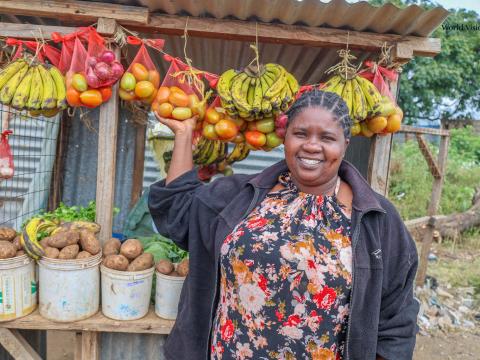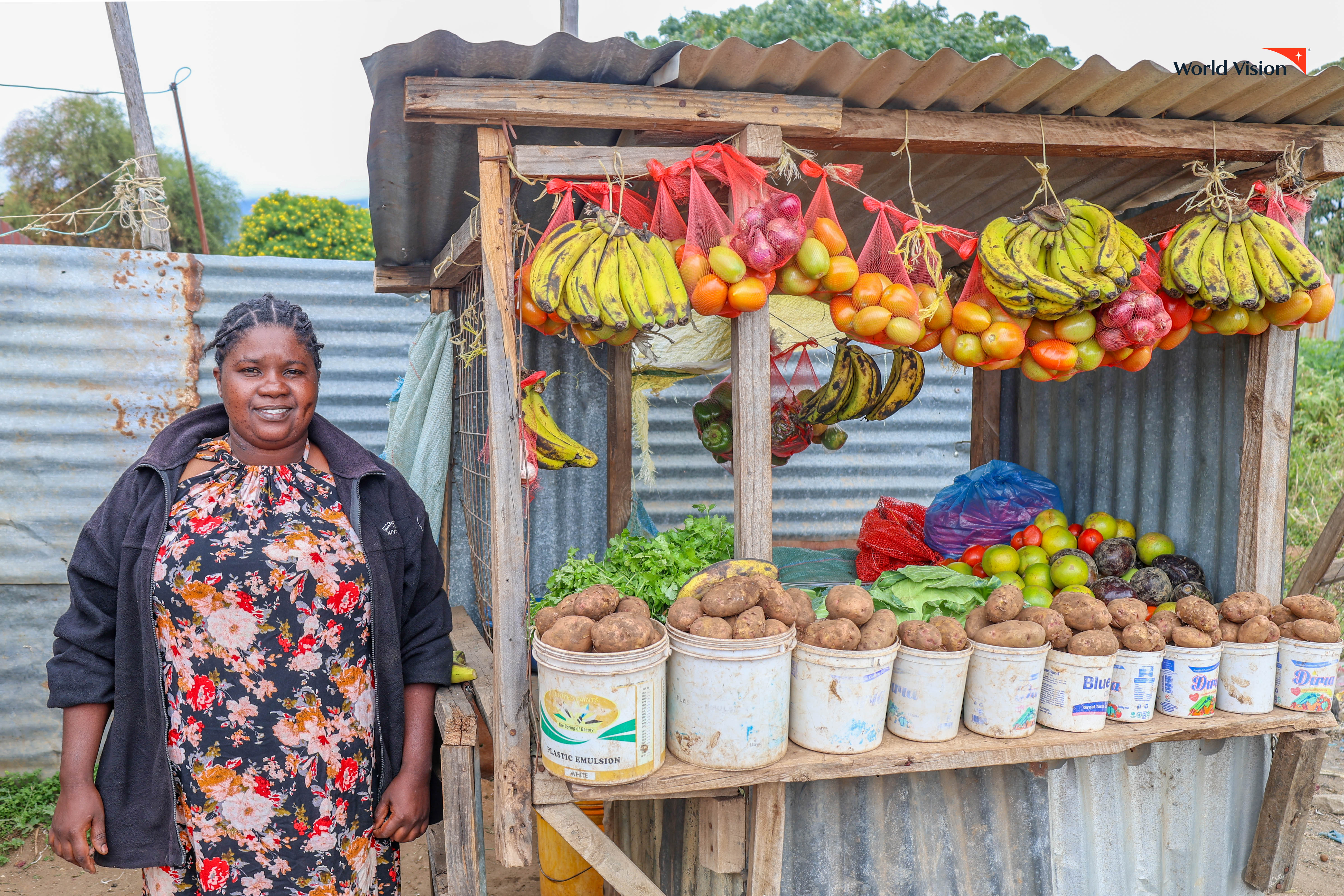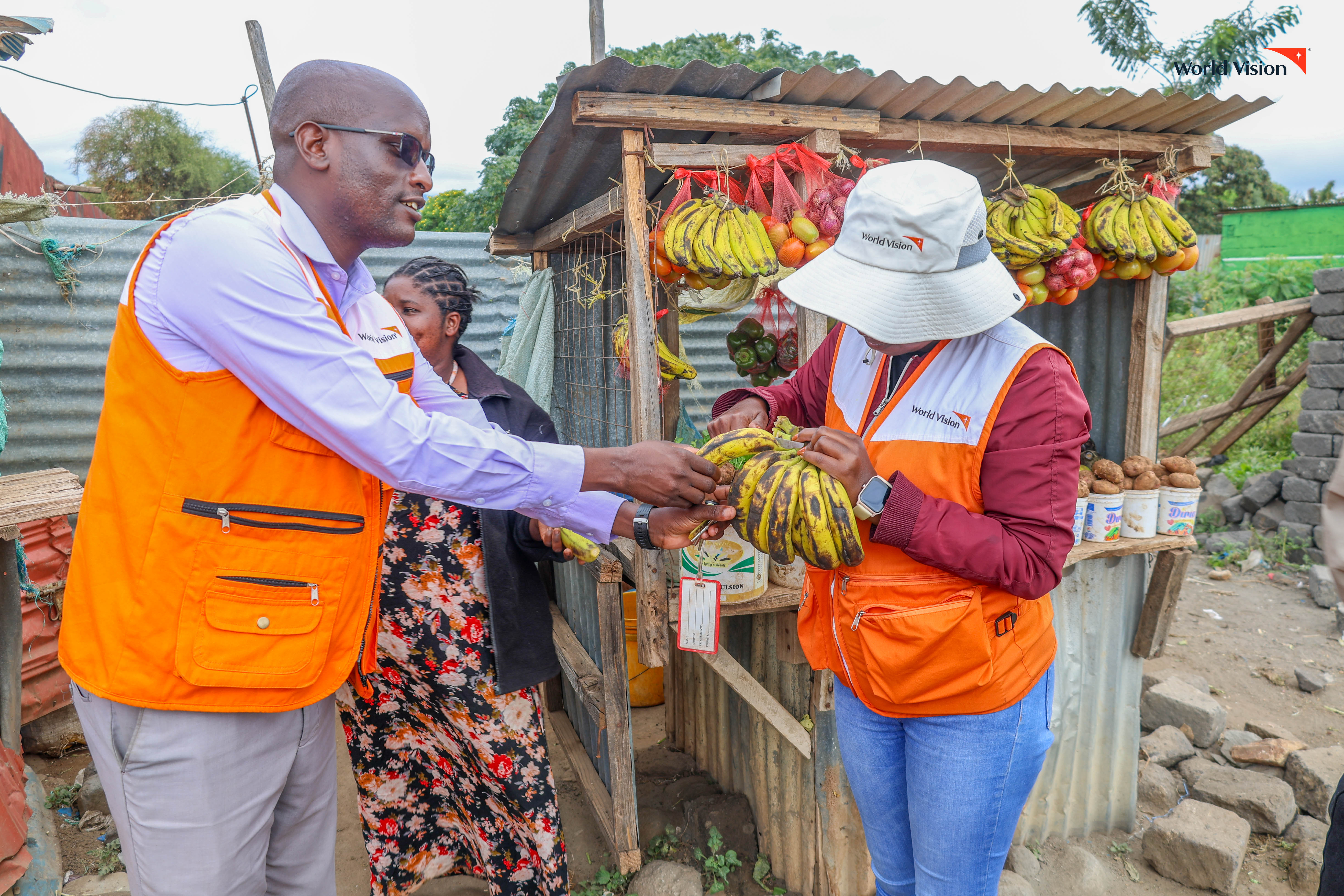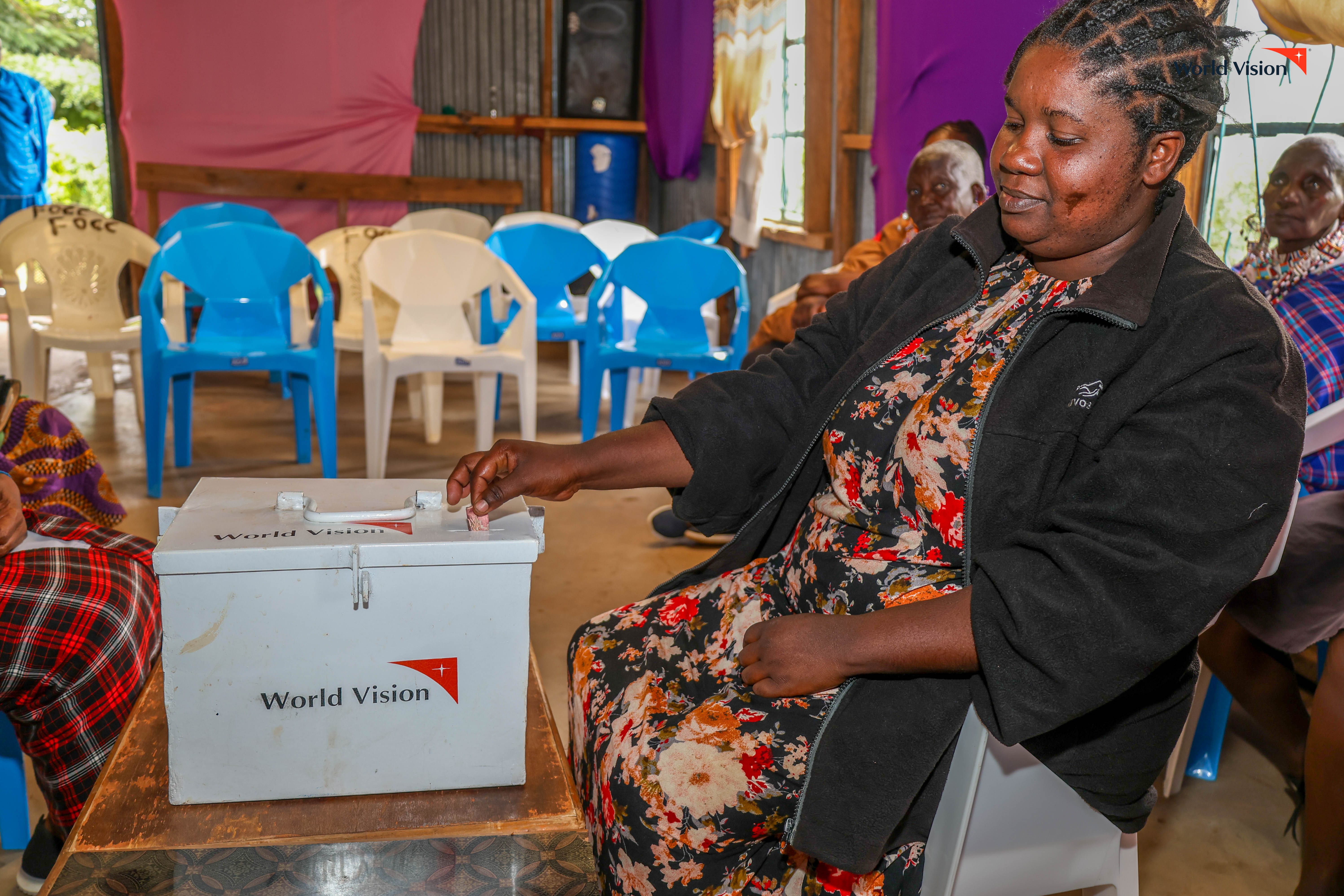Small Savings, Big Impact:How Savings Groups Are Transforming Lives

Can a loan as small as KShs 1,000 change a life? For Felister Mwikali, a mother of three in Oldonyo Orok, Kajiado County, it did much more, it reshaped her future.
Just a year ago, Felister’s days were marked by uncertainty. She ran a modest roadside grocery stall, selling vegetables and farm produce. Business was slow, and the pressure of school fees loomed constantly. Feeding her three children, aged 12, 6, and 3, wasn’t always guaranteed. Without savings or a safety net, every day was a fight to make ends meet.
That changed in July 2024, when Felister joined Angaza Neno, a Savings for Transformation (S4T) group established through the KOICA-funded KSEED project, implemented by World Vision Kenya. The group, made up of 26 members, came together with a simple but powerful mission: to save together, lend to each other, and change their lives collectively.
Felister borrowed her first KShs 1,000 (about 7 USD) and used it to restock her grocery stall. Slowly but surely, profits began to trickle in. Encouraged by this small breakthrough, she reinvested, borrowing KShs 2,000 (14 USD), then KShs 4,000 (28 USD), gradually increasing to her current loan of KShs 17,000 (119 USD).
Today, Felister is building a future. Her stall is thriving, her children are in school, and she dreams of the day she’ll confidently borrow KSh 50,000 (350 USD) to expand even further.
"I’m so happy I can finally afford to pay school fees for my children. It gives me peace knowing they won’t be sent home anymore," Felister says, her face lighting up with pride.

Felister’s story is part of a larger movement reshaping lives and landscapes across Narok and Kajiado counties. Through the Sustainable Environment and Economy Against Drought and Degradation (KSEED) project, World Vision and KOICA have trained over 100 Savings for Transformation groups, giving 1,450 community members access to credit and financial literacy. These groups empower individuals to save, borrow, and invest in businesses, agriculture, and education.

In Angaza Neno, group members track savings and loans through a shared phone, provided by the project, that sends SMS updates and stores digital records. Every member also has a passbook, ensuring transparency. They save weekly, contribute to a social fund for emergencies, and repay loans with interest that circulates back into the group. There is a savings box provided by World Vision, where members deposit their savings every week, further strengthening accountability and security of funds.

For Felister, these systems have created not only financial freedom but a new sense of purpose. Her children see her work hard, build something from the ground up, and give them a better chance in life. Through her, they are learning that transformation begins with action, no matter how small. “This grocery stall has changed our lives,” she says quietly. “It may look small from the outside, but it has built my children’s future.” Felister’s journey, from a KSh 1,000 loan to a self-sustaining business, is a real reflection of what financial empowerment looks like. Not just economic growth, but also generational impact.
By Mirriam Kioko, Communications Specialist, World Vision Kenya